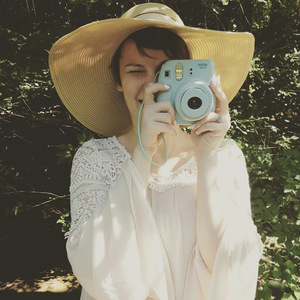Until half a year ago, I took for granted being able to eat whatever I want. I’m a relatively healthy person and I didn’t have a food allergy, so why would I bother? This means I never really had to consider what ingredients went into my food. That is, until I suddenly developed a food allergy.
I always thought that I was a pretty healthy person. Besides some seasonal allergies, I didn’t really have any medical issues. I never even had to go to the hospital. So I carried on my life pretty much doing and eating whatever I wanted. Then, I made a sudden discovery.
It came on rather suddenly. I was enjoying a plate of sushi when I felt it was becoming difficult to breathe. My throat was swelling up, and immediately I started panicking. I realized that I was going into anaphylactic shock. I’m lucky because this episode was pretty mild and only took a Benadryl to treat. So, in the end, all was well—except now I had discovered that I had a food allergy to shellfish.

At first, I figured “Well, that’s all right. How hard can it be to avoid shellfish?” Turns out it’s really hard. Shrimp is one of my favorite foods and giving it up was heartbreaking, to be honest. I kept having moments where I thought I would be okay if I had just a little bit. Then one allergic reaction and a Benadryl later, I would be passed out on the couch. I started to realize that things that I didn’t even know had shellfish in it were forbidden to me, as well. Stocks and sauces are sneaky since restaurants don’t often disclose what entirely goes into them. Cross-contamination is another risk, so going to any seafood restaurant can be dangerous for me now.

For a while, my allergy was the only thing I could think of during mealtimes. I started researching what I could do about. Eating out can be especially hard when you have a food allergy. Checking restaurants that I commonly enjoyed and scanning their menu for allergens was just the beginning. I also had to learn how to talk about it. This includes not being shy about letting people know that I have an allergy—especially friends and waiters—as it could be the difference between a hospital visit or not.
I reached a point where it was too exhausting to think about my allergy anymore. And that’s the when I noticed that I just preferred cooking at home. That way I knew exactly what was going into my food and didn’t have to worry about having another allergic reaction. Besides, it’s healthier and much more fun than eating out.

When you suddenly develop an allergy, there’s a learning curve. You have to determine how serious the allergy is and what you’re willing to do to avoid your allergen. I made plenty of mistakes early on, which caused lots of undue stress. However, while I’m not happy about having a serious allergy, I am glad that it’s forced me to start cooking at home more and being more aware of what I’m eating. Those are good practices to have, and it would’ve taken me much longer to adopt them otherwise.


